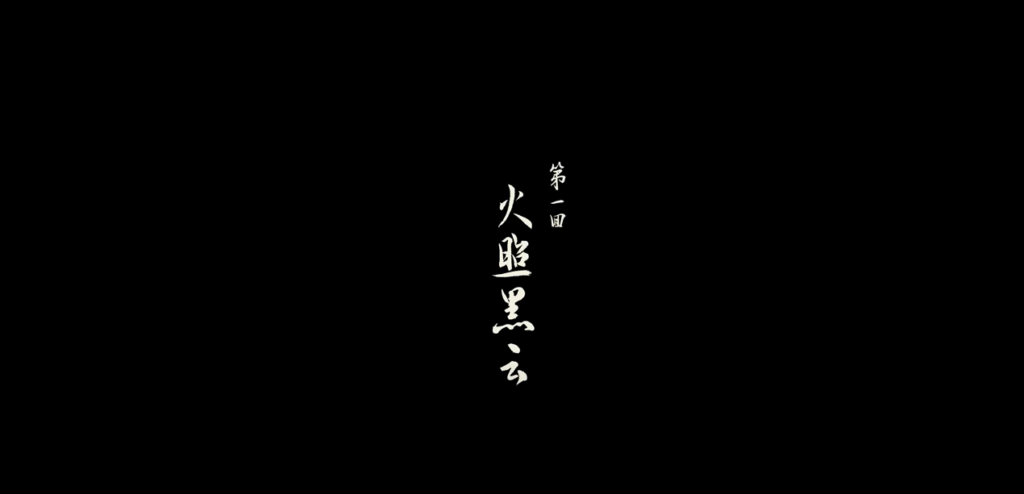
In the first chapter, through the minor monsters and the final boss, we can clearly understand that the story only references the “Fire on the Temple” event from Journey to the West that occurred five hundred years ago. The original content referenced in the novel includes [Chapter 16: The Monks of the Guanyin Monastery Plot to Steal the Treasure and the Monster from Black Wind Mountain Steals the Robe] and [Chapter 17: Sun Wukong Causes Havoc at Black Wind Mountain and Guanyin Subdues the Bear Monster]. Compared to the original work, the relationship between the Black Wind Monster and Elder Jinchi is portrayed in a more detailed and close manner in the game. Before the animation, the predestined person who defeats the Black Wind Monster obtains the “Root of Joy” in this chapter, which is the sparrow that Sun Wukong transformed into in the prologue. However, this sparrow has double pupils, foreshadowing Sun Wukong’s divine power of sight, the “Fiery Eyes with Golden Pupils,” and the burning pupils also symbolize the greed in human hearts.

The short film is introduced from the double-eyed sparrow, and the first scene is a toad.
As you can see, this toad also has double pupils, representing the “desire of the eyes”, and the toad is covered in golden patterns that look like coins.
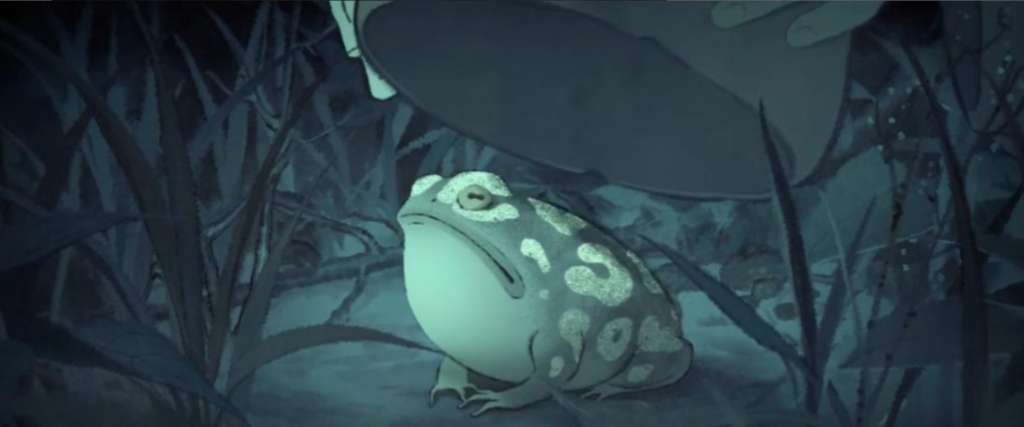
The young Elder Jinchi holds an alms bowl in his hand, trying to catch a golden toad, which symbolizes wealth. The golden toad keeps leaping away, while the young Elder Jinchi repeatedly attempts to capture it. This scene is also symbolic and ironic. The alms bowl represents the simplicity and lack of desire of monks, indicating that they only take enough food to sustain themselves, adhering to the precept of “one meal a day at noon.” As an important item for monks, the bowl also symbolizes purity, non-attachment, and the renunciation of worldly desires in Buddhist practice. However, the young Elder Jinchi uses the bowl to catch a toad that symbolizes money, which clearly reflects his childhood desire for wealth, making it a profound irony.
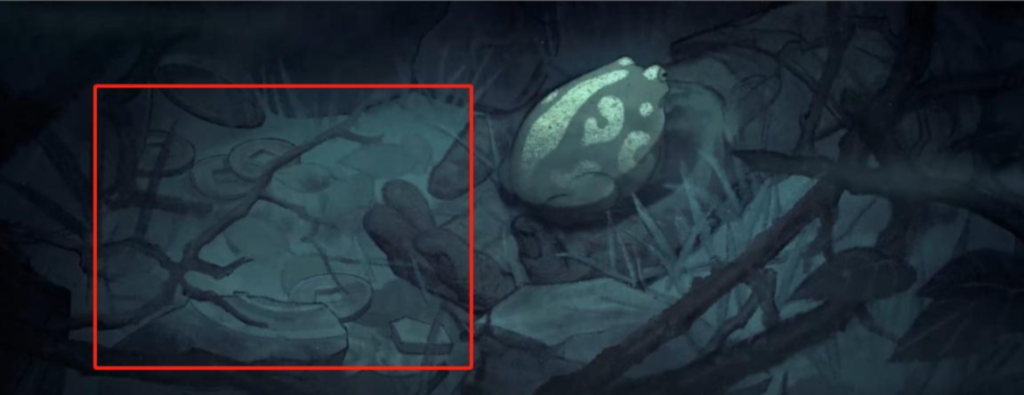
If someone still doubts the interpretation of the coin patterns on the toad as being a forced understanding, the coins here make it explicit. The coins clearly symbolize respect for the deceased
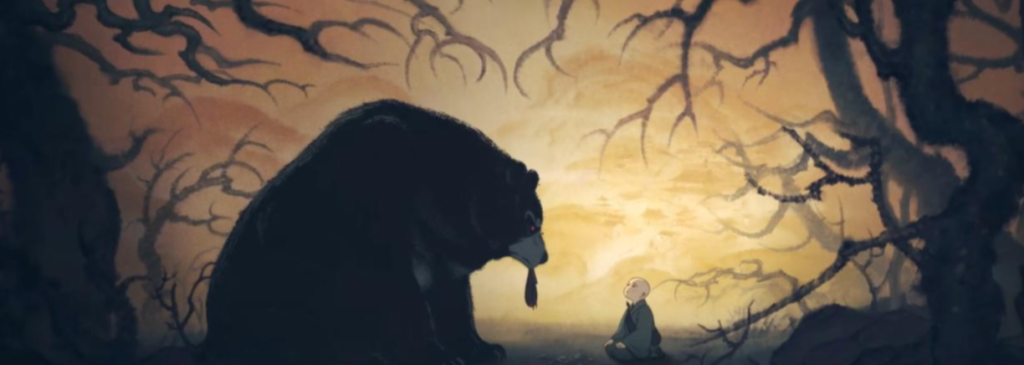
This is the first meeting between the young Elder JinChi and the Black Wind Monster. The Black Wind Monster brings money to the elder, foreshadowing the close connection between their greed and their future.
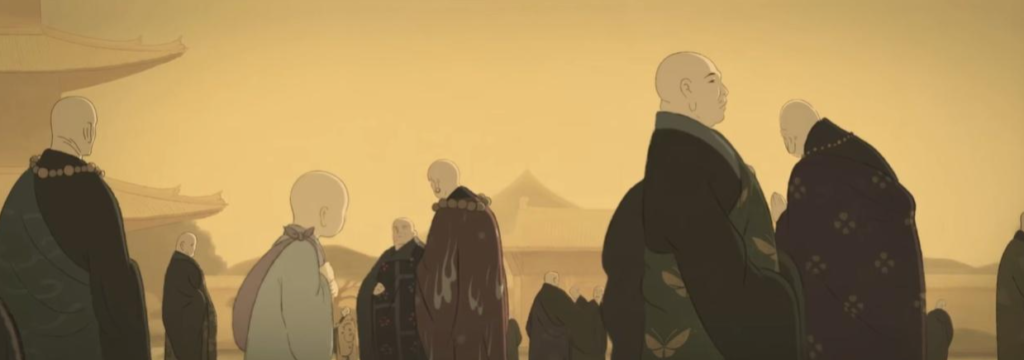
When Elder Jin Chi first entered the temple, all the monks had beautiful cassock, but his robe was the simplest.

The shadow of Elder Jin Chi at the beginning was still himself worshipping Buddha
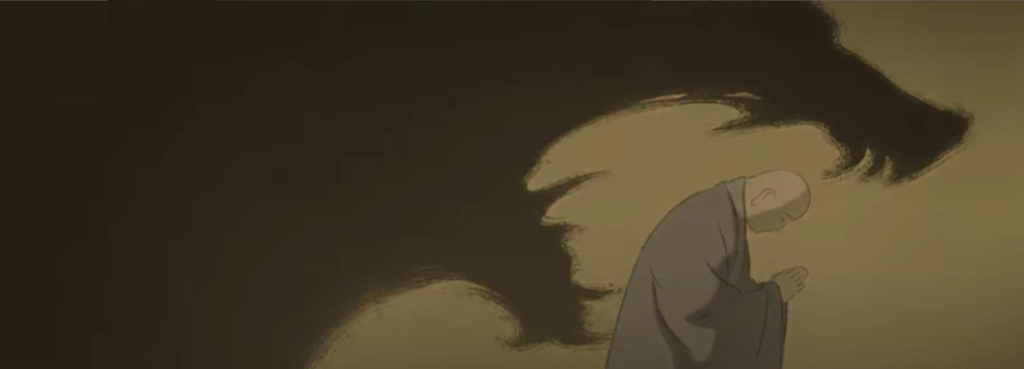
The shadow suddenly turned into a black bear that swallowed him, foreshadowing that Elder Jin Chi began to collude with the Black Wind Monster and the shadow of desire began to devour himself.
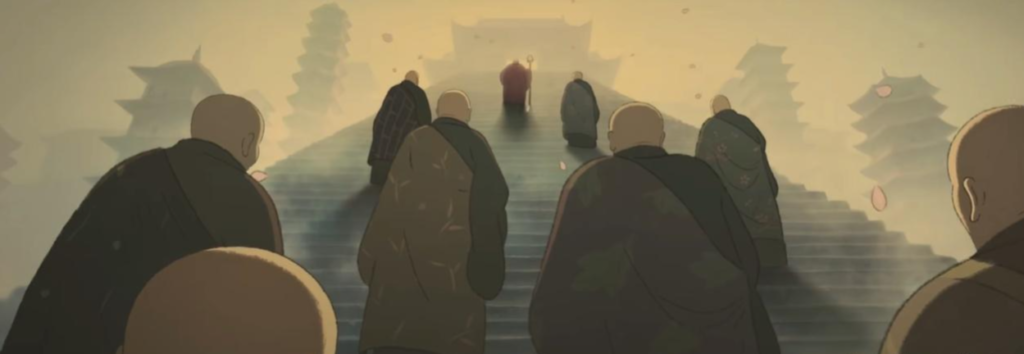
high-class cassock and a golden scepter. Meaning that Elder Jin Chi gradually ascended to a high position of power, money and desire.

In the original Journey to the West, the adult Elder Jin Chi is keen on collecting high-class cassock.
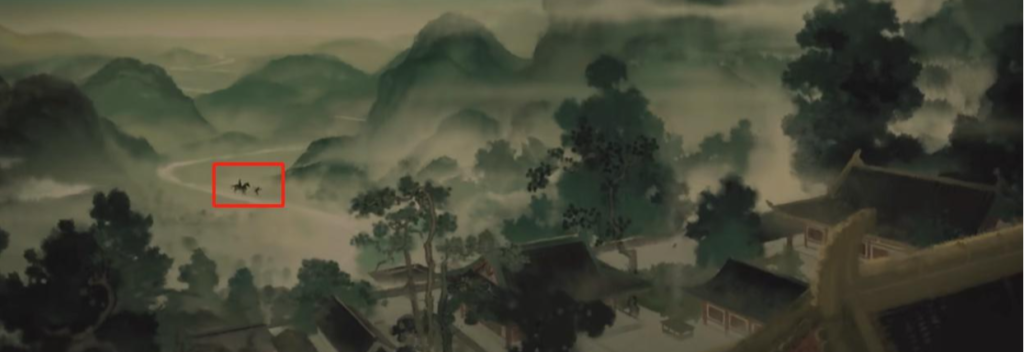
Here, Tang Monk and his disciples arrive. The picture clearly shows that there are only two of them at this time. Zhu Bajie and Monk Sha have not yet joined.
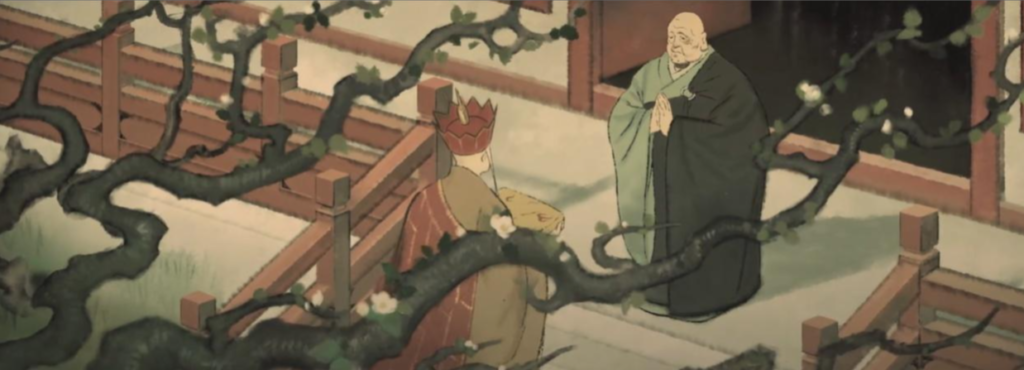
In original Journey to the West, Elder Jinchi tricks Tang Sanzang and his disciples into staying overnight at the monastery and then sets the place on fire during the night, attempting to burn them alive. This was meant to cover up his crime of stealing the Tang Sanzang’s cassock. However, Sun Wukong sees through his plot and ultimately saves Tang Sanzang, defeats the Black Wind Monster, and punishes Elder Jinchi.
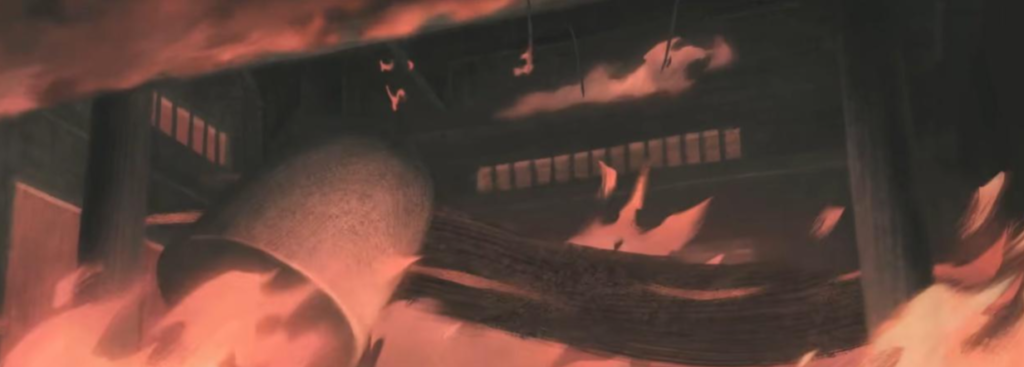
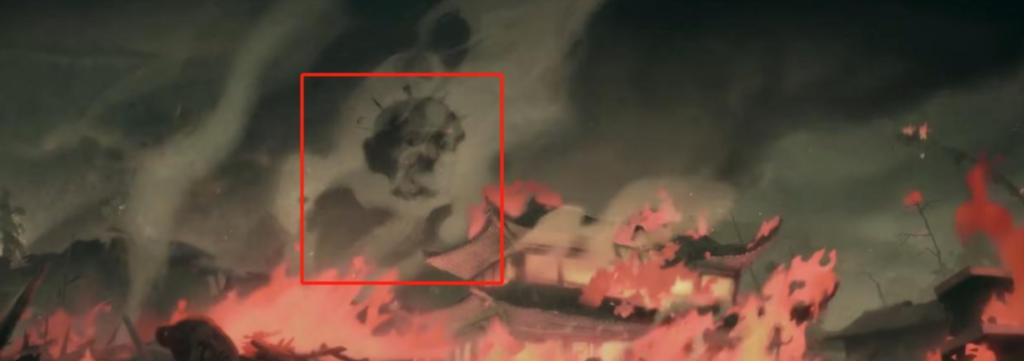
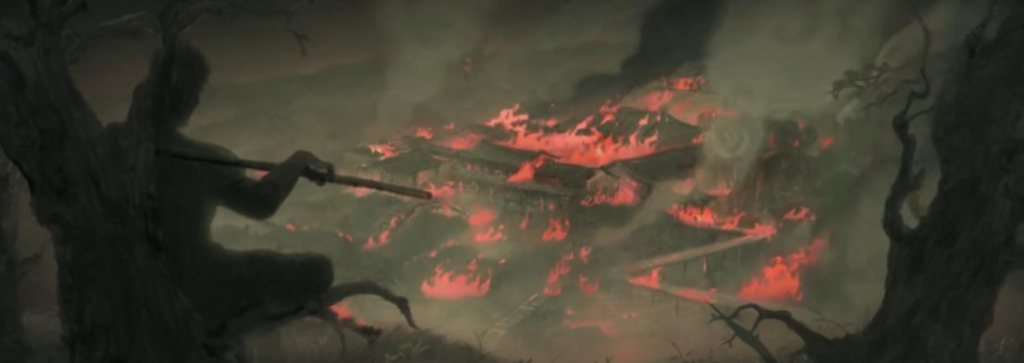
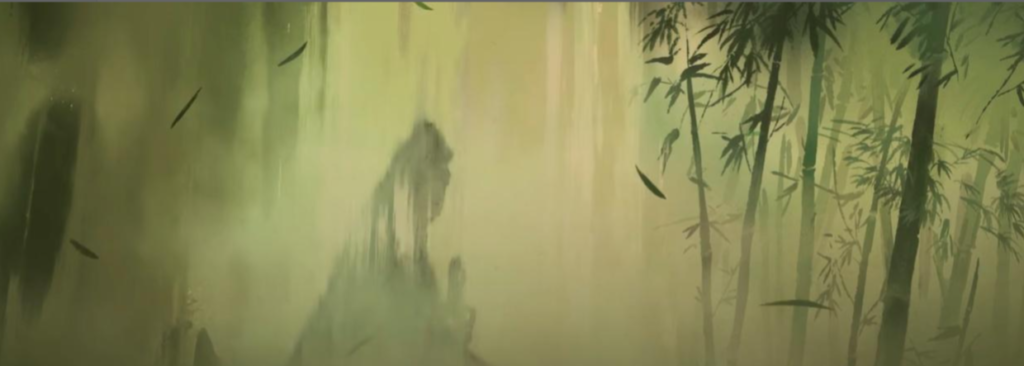
At the end of the short film, the black bear asked Guanyin a few words to explain the meaning of this chapter.
Black Bear: “Master, I still can’t figure it out. A monk has cut off his worldly ties and his golden sea has dried up, but why can’t the elder let go of a piece of clothing ?”
Guanyin: “If I don’t put on this piece of clothing, how can sentient beings know that I have cut off my worldly ties and my golden sea has dried up?”
This conversation expresses two problems that Elder Jin Chi has in his practice. One is that he cannot distinguish between appearance and heart, and the other is vanity. Elder Jin Chi is not greedy for money, but for the cassock. Although both are greed, the difference is that while Elder Jin Chi is greedy, he wants to prove his heart by collecting cassocks – that he has profound Buddhist teachings. And having profound Buddhist teachings is obviously a matter of “heart”, but Elder Jin Chi has always wanted to prove it by collecting cassocks, an external “appearance”.
